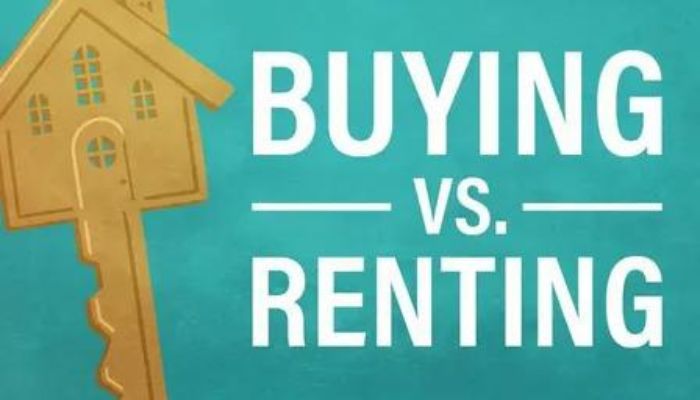Introduction
Buying your first home is an exciting milestone, but it can also feel overwhelming. The process is filled with new terminology, financial commitments, and big decisions. Whether you’re just starting to dream of owning a home or already hunting for the perfect property, understanding the key steps in the homebuying process is essential. This ultimate guide will break down everything you need to know, from financial preparation to closing the deal, making your journey to homeownership as smooth as possible.
Understanding the Homebuying Process

The Importance of Buying Your First Home
Purchasing your first home is a significant achievement that can provide a sense of stability and pride. Unlike renting, owning a home allows you to build equity over time, benefiting from potential property appreciation. Plus, there’s nothing quite like having a place to truly call your own.
Renting vs. Buying: Is It the Right Time?

One of the biggest questions first-time buyers face is whether buying makes more financial sense than renting. While renting can offer flexibility, buying typically becomes more cost-effective if you plan to stay in one place for several years. It’s important to consider your current financial situation, career stability, and long-term plans before making this decision.
Preparing for Homeownership
Owning a home comes with responsibilities like maintenance, property taxes, and homeowner’s insurance. Before diving into the homebuying process, ensure you’re ready for the long-term commitment, both financially and emotionally.
Financial Preparation for First-Time Buyers
Setting a Realistic Budget
The first step in preparing to buy a home is setting a budget that aligns with your financial situation. You’ll want to consider not only the cost of the home but also additional expenses like closing costs, moving, and maintenance. Most experts recommend that your monthly mortgage payment should not exceed 25-30% of your gross income.
Saving for a Down Payment
How Much Down Payment Do You Really Need?

The size of your down payment will affect your mortgage terms. While the traditional 20% down is ideal to avoid private mortgage insurance (PMI), many first-time buyers put down as little as 3-5%, depending on the loan program. It’s essential to research your options to find what works best for you.
Creative Ways to Save for a Down Payment
Saving for a down payment can take time, but there are creative ways to speed up the process. Automating savings, cutting non-essential expenses, or using windfalls like bonuses and tax returns can make a significant difference. Additionally, some programs offer down payment assistance to first-time buyers.
Understanding Your Credit Score and How It Affects Your Mortgage
Your credit score plays a crucial role in determining the interest rate and terms of your mortgage. Lenders look for a credit score of at least 620, though higher scores open doors to better interest rates. If your credit needs improvement, start by paying off debt and reducing credit card balances.
Exploring Mortgage Options
Fixed-Rate vs. Adjustable-Rate Mortgages
Fixed-rate mortgages have interest rates that remain the same throughout the life of the loan, offering predictability. Adjustable-rate mortgages (ARMs), however, may start with lower rates but can fluctuate over time. First-time buyers often prefer fixed-rate loans for the stability they provide.
First-Time Homebuyer Loan Programs
Many first-time buyers are eligible for special loan programs, such as FHA loans, which require lower down payments and have more lenient credit requirements. Look into VA loans if you are a veteran or USDA loans for rural areas, as these can offer favorable terms for qualified buyers.
Finding the Right Home
Identifying Your Needs vs. Wants
It’s easy to get caught up in wish lists when looking for a home, but distinguishing between needs and wants is crucial. Prioritize essential features, like the number of bedrooms, while being flexible on cosmetic details you can change later, such as paint colors or landscaping.
Researching Neighborhoods
Location is everything in real estate. Take the time to explore potential neighborhoods, considering factors like proximity to work, schools, crime rates, and future development. Even if a home ticks all the boxes, being in the wrong neighborhood can lead to long-term dissatisfaction.
Hiring a Real Estate Agent: Is It Worth It?
A real estate agent can guide you through the buying process, helping you find homes within your budget and negotiate the best deal. For first-time buyers, their expertise can be invaluable, though it’s essential to find an agent with a strong understanding of the local market.
The Homebuying Process: Step-by-Step
Getting Pre-Approved for a Mortgage
Before you start house hunting, get pre-approved for a mortgage. This gives you a clear idea of how much home you can afford and shows sellers you’re a serious buyer, which can be a big advantage in competitive markets.
House Hunting and Attending Open Houses
With your pre-approval in hand, it’s time to start visiting homes. Make sure to attend open houses and view a variety of properties to get a feel for what’s available within your budget.
Making an Offer and Negotiating
Once you’ve found a home you love, it’s time to make an offer. Your real estate agent can help you determine a fair offer price based on comparable homes in the area. After submitting the offer, be prepared for negotiations, especially in a seller’s market where multiple bids are common.
What Happens After Your Offer is Accepted?
After your offer is accepted, the home goes into escrow. During this period, a home inspection and appraisal will take place, and your lender will finalize the mortgage.
Navigating Home Inspections and Appraisals
The Importance of a Home Inspection
A home inspection helps identify any potential issues with the property, such as structural problems or outdated electrical systems. While some issues might be minor, others could require expensive repairs. It’s vital to address these concerns before finalizing the purchase.
Understanding Home Appraisals and Their Role
An appraisal ensures the home’s value matches the sale price, protecting both you and the lender from overpaying. If the home appraises for less than the offer price, you may need to renegotiate or pay the difference out of pocket.
Closing the Deal
What Happens During Closing?
At closing, you’ll sign a mountain of paperwork, finalize your mortgage, and pay any closing costs. Once everything is complete, you’ll receive the keys to your new home! Closing can take several hours, but it’s the final step before you become a homeowner.
Common Closing Costs for First-Time Buyers
Closing costs typically range from 2-5% of the loan amount and can include fees for the appraisal, home inspection, title insurance, and attorney services. Be sure to factor these into your budget to avoid surprises on closing day.
Tips for Settling Into Your New Home
Moving Checklist for First-Time Homeowners
Moving into your new home can be stressful, but a checklist can help. Start by setting up utilities, forwarding your mail, and scheduling movers well in advance. Once you’re in, focus on unpacking essential items first.
Maintenance Tips for New Homeowners
As a homeowner, regular maintenance is key to preserving the value of your property. Create a schedule for tasks like changing HVAC filters, cleaning gutters, and inspecting the roof annually to prevent costly repairs down the line.
Conclusion
Buying your first home is a major life event, but with the right preparation and knowledge, the process doesn’t have to be overwhelming. By following this guide, you’ll be well on your way to finding the perfect home, securing the best mortgage, and navigating the homebuying process with confidence. Here’s to the exciting journey ahead!
Frequently Asked Questions
It depends on the price of the home and your down payment. Generally, you should save for a down payment (3-20% of the home price), plus 2-5% for closing costs.
Look for factors such as proximity to work, schools, amenities, crime rates, and future development plans. Make sure the neighborhood fits your lifestyle and long-term goals.
From pre-approval to closing, the process can take anywhere from 30-90 days, depending on the market, inspections, and negotiations.
This depends on your budget and willingness to take on renovations. A fixer-upper can be cheaper upfront but may require extensive repairs, while a move-in-ready home costs more but saves time and hassle.
Yes, though it may be more challenging. Look for loan programs designed for buyers with lower credit scores, such as FHA loans, and work on improving your credit before applying.




